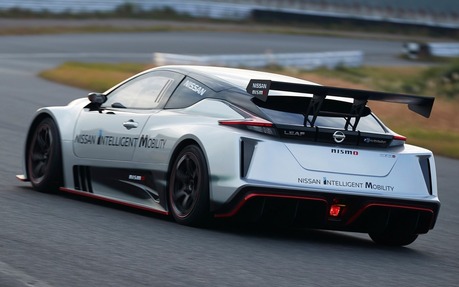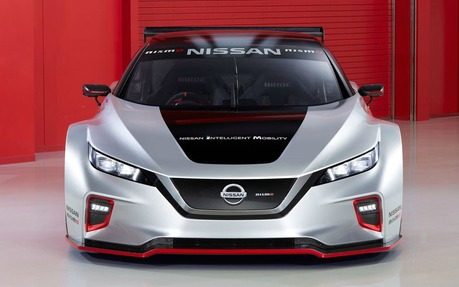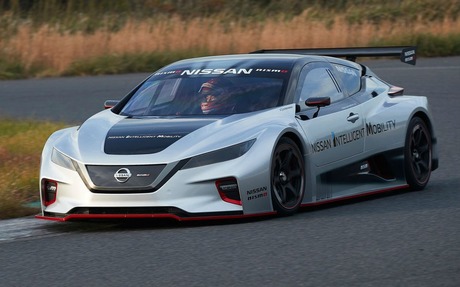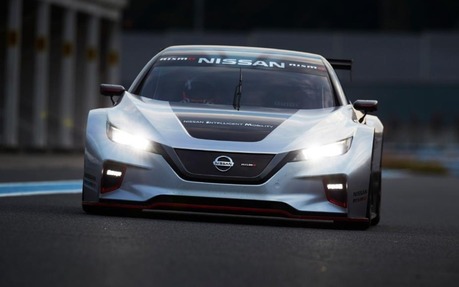Nissan LEAF NISMO RC: The Future of Cars is Anything but Boring
A few days after the Global Climate Strike, the renowned Circuit Mont-Tremblant hosted its annual Fall Classic, which is a large gathering of performance enthusiasts and definitely not the place to be if you’re a Mother Nature advocate.
That being said, Tremblant did its part to reduce greenhouse gas emissions this year. Some automakers like Porsche and Nissan used the event to showcase their latest electric cars. One of them was the Nissan LEAF NISMO RC race car. The Car Guide had the opportunity to get a close look at it and even take it out on the track.
- Also: The Car Guide’s 2019 Best Buys: Nissan LEAF
- Also: Nissan Canada Announces Pricing for the Longer-range LEAF PLUS
Nissan Canada’s director of communications, Didier Marsaud, made it perfectly clear: the LEAF NISMO RC is just a prototype at this stage and it doesn’t foreshadow a new addition to the lineup. The company essentially wants to show that cars of the future can be exciting even when running on electricity.
Based on the Nissan LEAF, the NISMO RC is much flatter and wider, with a body entirely made of carbon fibre. It uses a pair of electric motors—one up front and another in the rear—to generate a combined 332 horsepower and 472 pound-feet of torque. Nissan claims the super-lightweight machine (1,220 kg) can sprint from 0-100 km/h in just 3.4 seconds.

Our lapping session took place shortly before the Micra Cup race. We first rode shotgun while a seasoned driver showed us how it’s done. Unsurprisingly, the instantaneous torque delivery from the electric motors resulted in violent, supercar-like acceleration. The level of performance was actually similar to that of the almighty Nissan GT-R, while the amount of grip in corners was otherworldly. This was all very impressive to say the least.
Performance aficionados often complain about EVs not emitting the slightest mechanical sound, but we can assure you that the cockpit of the Nissan LEAF NISMO RC was quite loud. Due to the sheer lack of noise insulation, we could easily hear the motors at work, both when supplying energy to the wheels and when charging the battery through regenerative braking. It felt like we were in a sci-fi movie!
The wet track made it tough to exploit all the power at our disposal. Fortunately, the added all-wheel drive system did a superb job when exiting corners, allowing the car to drift in elegant fashion without losing much speed. The motors handle torque vectoring and they can even spin in the opposite direction to help the LEAF NISMO RC turn more sharply, which is impossible to do with a gasoline-powered car.

This was another proof that electric vehicles surpass their combustion-engine counterparts in terms of performance. The centre of gravity is lower, the powertrain is less complex and the motors are more responsive. The battery’s range and charging times still need to be improved, but recent technological advances suggest it won’t be a problem for long.
While Didier Marsaud reiterated multiple times that no production model will come from the LEAF NISMO RC in the next couple of years, we’re fairly certain that a new electric sports car will emerge at some point. You don’t need a big V8 engine to have a blast on the track.

Purists can rest assured: high-performance cars in the EV-driven future will provide the same formidable thrills.
